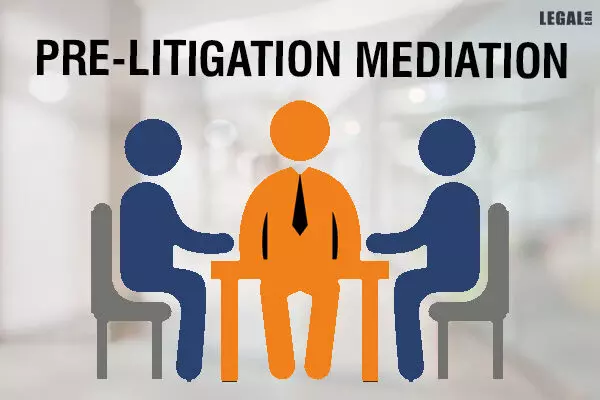- Home
- News
- Articles+
- Aerospace
- AI
- Agriculture
- Alternate Dispute Resolution
- Arbitration & Mediation
- Banking and Finance
- Bankruptcy
- Book Review
- Bribery & Corruption
- Commercial Litigation
- Competition Law
- Conference Reports
- Consumer Products
- Contract
- Corporate Governance
- Corporate Law
- Covid-19
- Cryptocurrency
- Cybersecurity
- Data Protection
- Defence
- Digital Economy
- E-commerce
- Employment Law
- Energy and Natural Resources
- Entertainment and Sports Law
- Environmental Law
- ESG
- FDI
- Food and Beverage
- Gaming
- Health Care
- IBC Diaries
- In Focus
- Inclusion & Diversity
- Insurance Law
- Intellectual Property
- International Law
- IP & Tech Era
- Know the Law
- Labour Laws
- Law & Policy and Regulation
- Litigation
- Litigation Funding
- Manufacturing
- Mergers & Acquisitions
- NFTs
- Privacy
- Private Equity
- Project Finance
- Real Estate
- Risk and Compliance
- Student Corner
- Take On Board
- Tax
- Technology Media and Telecom
- Tributes
- Viewpoint
- Zoom In
- Law Firms
- In-House
- Rankings
- E-Magazine
- Legal Era TV
- Events
- News
- Articles
- Aerospace
- AI
- Agriculture
- Alternate Dispute Resolution
- Arbitration & Mediation
- Banking and Finance
- Bankruptcy
- Book Review
- Bribery & Corruption
- Commercial Litigation
- Competition Law
- Conference Reports
- Consumer Products
- Contract
- Corporate Governance
- Corporate Law
- Covid-19
- Cryptocurrency
- Cybersecurity
- Data Protection
- Defence
- Digital Economy
- E-commerce
- Employment Law
- Energy and Natural Resources
- Entertainment and Sports Law
- Environmental Law
- ESG
- FDI
- Food and Beverage
- Gaming
- Health Care
- IBC Diaries
- In Focus
- Inclusion & Diversity
- Insurance Law
- Intellectual Property
- International Law
- IP & Tech Era
- Know the Law
- Labour Laws
- Law & Policy and Regulation
- Litigation
- Litigation Funding
- Manufacturing
- Mergers & Acquisitions
- NFTs
- Privacy
- Private Equity
- Project Finance
- Real Estate
- Risk and Compliance
- Student Corner
- Take On Board
- Tax
- Technology Media and Telecom
- Tributes
- Viewpoint
- Zoom In
- Law Firms
- In-House
- Rankings
- E-Magazine
- Legal Era TV
- Events
Delhi High Court Affirms Mandatory Nature of Pre-Litigation Mediation under Section 12-A of Commercial Courts Act

Delhi High Court Affirms Mandatory Nature of Pre-Litigation Mediation under Section 12-A of Commercial Courts Act
Justice Prateek Jalan of the Delhi High Court has affirmed the mandatory nature of pre-litigation mediation as stipulated in Section 12-A of the Commercial Courts Act, 2015.
Section 12-A of the Act mandates pre-institution mediation before filing a suit, unless urgent interim relief is sought. Legal Services Authorities may be authorized by the Central Government for this, with a mediation timeframe of three months, extendable by two months with parties' consent. Settlements reached have the same status as arbitral awards under the Arbitration and Conciliation Act, 1996.
The plaintiff approached the Delhi High Court with an application seeking exemption from pre-litigation mediation, as required by Section 12-A of the Commercial Courts Act, 2015. The suit filed by the plaintiff aims to recover Rs.6,13,07,075/-, inclusive of a principal sum of Rs. 3,51,27,626/- and accrued interest, as well as future interest.
The plaintiff argued for exemption from pre-institution mediation, citing a previous mediation attempt during proceedings under Section 138 of the Negotiable Instruments Act, 1881, albeit not in strict accordance with Section 12-A. It contended that once mediation has occurred, the court may not require fresh mediation, even if not strictly complying with Section 12-A's provisions.
The High Court observed that the situation in this case differed from the precedent set in Amit Walia v. Shweta Sharma. In the aforementioned case, the court's decision was based on mediation carried out under the auspices of the Delhi High Court Mediation and Conciliation Centre. Despite not occurring before the District Legal Services Authority, as required by the Commercial Courts Act, the court deemed this mediation sufficient compliance with Section 12-A.
The High Court stressed the importance of mediation as a compulsory pre-litigation step in commercial disputes. It emphasized the mandatory language employed in Section 12-A, the elaborate procedure delineated in the Rules, the prospective advantages of mediation, and the legislative aim to afford a degree of choice to the defendant while mandating it for the plaintiff. Furthermore, it highlighted how Section 12-A raises settlement to the status of an award, rendering it enforceable similar to Section 30(4) of the Arbitration Act, and excludes the duration of mediation for limitation purposes.
Therefore, the High Court ruled that pre-litigation mediation was obligatory. Consequently, the application was dismissed, and the plaint was rejected under Order VII Rule 11 of the Code of Civil Procedure, 1908, resulting in the dismissal of the suit.


